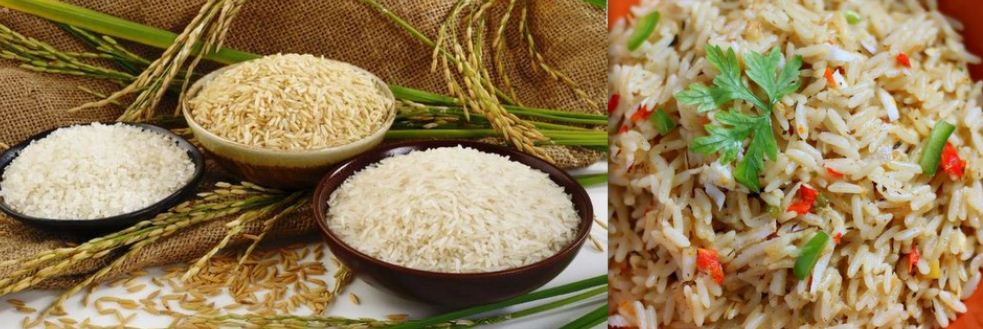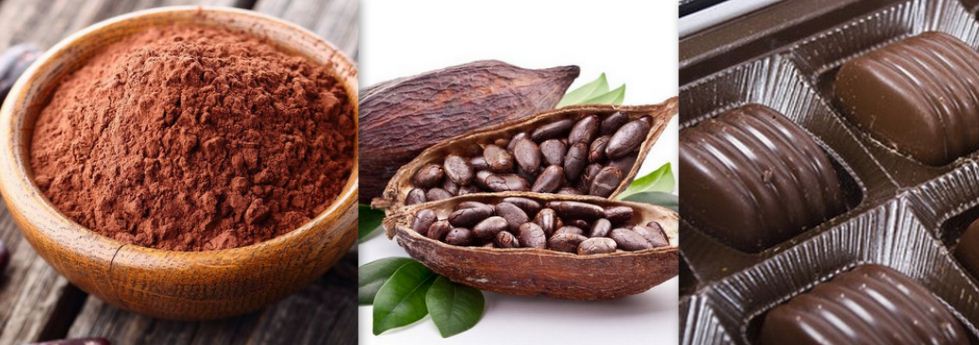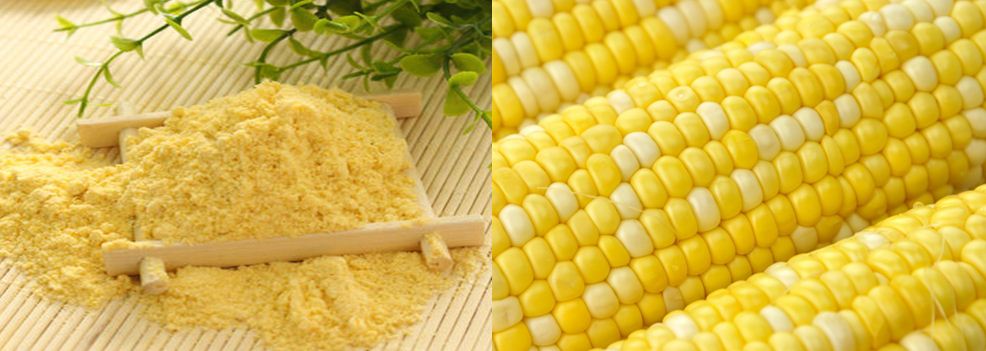About Nutritional and Health Benefits of Rice

As far as rice is concerned in Nigeria, Africa and some other countries of the world, locally grown rice popularly called “Local Rice”, “Ofada Rice” or “Abakaliki Rice” in Nigeria, and other names in other countries will always be considered the best as it has a lot to offer when it comes to health benefits and contains lots of un-adulterated nutrients which is good for the body and overall health.
Locally grown rice “unpolished or brown rice” contains lots of nutrients than the polished rice and these nutrients includes carbohydrate, protein, contains high fiber, fats, vitamins and minerals such as folic acid, phosphorus, vitamin B1 (thiamine), vitamin B3 (niacin), magnesium, selenium, manganese, and iron.
Below Are The Health Benefits Of Local Rice:
1. Rich in Carbohydrate
Its carbohydrate content is of high quality and because of that, it is one of the carbohydrate food sources in Nigeria and is also known to provide adequate energy because of its calorie content and can aid in weight gain as well.
The calorie content differs, as brown rice contains fewer calories than white rice.
2. Helps in Digestion
Rice is rich in fiber content which aids in the body’s digestion processes and helps also in reducing and preventing of digestive disorder and also decreases the level of cholesterol in the body.
The fiber it contains is said to be twice/triple as much as that of polished rice and includes both the soluble and insoluble fiber which acts as roughages improving digestive system health conditions such as diarrhea, constipation, etc.
Insoluble fiber has been researched also to help in the prevention of the risk of gallstones in women.
Rice also strengthens or improves the digestive system through its rich digestive enzymes which help alleviate candida infections which affect the digestive system by weakening it.
3. Gluten-Free
Rice contains protein but its protein is considered gluten-free which makes it a good source of food for those who have coeliac disease as well as those suffering from dermatitis herpetiformis as they are considered gluten intolerance.
4. Protects the Heart
The presence of magnesium and selenium can help in protecting the heart from diseases as well as decrease the chances of related heart and blood vessel (cardiovascular) disease respectively.
It might be surprising to know that rice contains fats, though, in low amounts, the content of the saturated fats which is very low makes its good for the heart.
5. Reduces the Risk of Diabetes
Brown rice can help to reduce the chances of diabetes, unlike white rice which can trigger or increase the chances of diabetes because of its content of refined carbohydrates which can aid in increasing the level of the blood sugar in the body.
6. Prevents Neurodegenerative Diseases
It has been researched also that whole grain such as brown rice can effectively help to reduce or even better, prevent Alzheimer's disease as well as other neurodegenerative diseases because of its high content of neurotransmitters.
7. Good for the Bones and Heart
Rice contains magnesium which is very vital for bone structures as it helps in the absorption of the calcium, and also helps in the reduction of blood pressure especially when it is high as well as other related symptoms caused by high blood pressure such as migraines, ischemic heart attack, and even stroke.
The presence of magnesium in local rice also helps in the maintenance and improvement of the nervous system.
8. Fights Cancer
Local or unpolished rice contains phytonutrient like lignin which is commonly found in plants is converted to enterolactone, thereby eating more unpolished or local rice increases the enterolactone level in the body which helps in the reduction and fight against the cancer of the breast and even other diseases of the heart.
Also, the mineral selenium which is found in local rice has been discovered to reduce the chances of getting colon cancer. This is so because the dietary rich fiber rice doesn’t only aid in digestion but also helps protect the colon by the removal of chemicals that might be present in the gastrointestinal tract.
9. Helps in Weightloss
In as much as rice is high in calories, it also contains other nutrients such as manganese which help in the synthesizing of fats in the body. Whole-grain foods such as local rice also help in the reduction of fats and body mass index (BMI) which leads to weight loss.
10. Reduce Sleep Disorder
Local or brown is said to contain high levels of melatonin making it one of the natural sources of the sleep hormone. Melatonin helps in relieving insomnia and other sleep disorder by making the nerves be in a relax mood thereby triggering sleep.
11. Has an Anti-Aging Property
Local rice contains an anti-aging property which is known as ferulic acid which enhances and promotes the skin making it smoother, brighter and softer, and as well reduces wrinkles and eliminates the chances of aging.
12. Good for Pregnant Women
Local/brown rice is rich in the mineral folate which is a form of folic acid essential for pregnant and (Trying To Conceive) TTC mothers as it promotes healthy development and growth of the baby (fetus).
Nutritional Values of Local/Brown Rice:
|
Amount per 100 grams |
|
|
Components |
Amount (% Daily Value) |
|
Calories |
111 |
|
Total Fat |
0.9 g 1% |
|
Saturated fat |
0.2 g 1% |
|
Polyunsaturated fat |
0.3 g |
|
Monounsaturated fat |
0.3 g |
|
Cholesterol |
0 mg 0% |
|
Sodium |
5 mg 0% |
|
Potassium |
43 mg 1% |
|
Total Carbohydrate |
23 g 7% |
|
Dietary fiber |
1.8 g 7% |
|
Sugar |
0.4 g |
|
Protein |
2.6 g 5% |
|
Vitamin A |
0% |
|
Vitamin C |
0% |
|
Calcium |
1% |
|
Iron |
2% |
|
Vitamin D |
0% |
|
Vitamin B-6 |
5% |
|
Vitamin B-12 |
0% |
|
Magnesium |
10% |
How Rice can be consumed:
Rice is not only a staple food in Nigeria but is the most populous of the available food crops as it is widely eaten by many. Rice is mostly known as a source of carbohydrate and classified as one of the energy-giving foods but it is really more than that as it contains some other essential nutrients which the body needs too.
In Nigeria and some other West African countries, it is a common food source and can be used in preparing various delicacies such as plain rice and sauce or stew, jollof rice, coconut rice, Ofada rice, Nigerian fried rice, rice pudding, rice and beans cuisine, rice pancake and lots more.
The major nutrient in Rice is carbohydrates, but with the presence of other nutrients, especially in brown rice which contains natural nutrients, helps to balance the carbohydrate content.
Kinds of Local Rice in Nigeria:
Brown or local rice such as Abakiliki, Ofada, and Lake Rice is considered more beneficial than polished/white rice as it contains more nutrients than its counterparts that have lost most of its nutrients during processing.
Local rice is in high demand because of the nutrients contained in them as they are not genetically modified.
Ofada Rice is the name given to the locally grown rice in the south-west area, the rice was first grown in Ofada Town in Ogun after it was later cultivated in other towns and villages.
While Abakaliki Rice is the name for the local type of rice which is grown in the South-Eastern part of Nigeria and comes from Abakaliki in Ebonyi State where it is predominately/first grown.
Lake Rice may not be a common name in the market but it is a kind of local rice well known in Lagos State.
The Nigerian local rice is characterized by its brown color with robust shape, unique flavor especially when it is cooked.
Conclusion:
Local rice is a super whole grain with lots of health benefits and is believed not to cause any kind of allergic reaction, unlike the polished rice.
It helps in reducing chronic illnesses such as infertility, accelerated aging, gastrointestinal problems, etc., which is gotten from genetically modified foods due to the chemicals used in the processing which are mostly present in the food.
Local/brown rice contains diverse ranges of nutrients which helps in improving the skin tone, helps in the treatment of many skin and hair conditions such as psoriasis and hair loss. Its content of ferulic acid also makes it an anti-aging property which is good for the skin.




